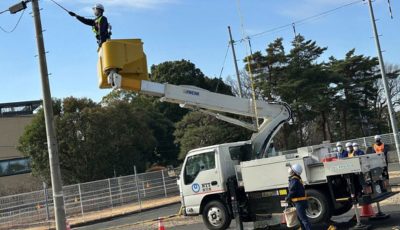CW permit holders share ‘frustration, confusion’ on travel applications
Angeles finally secured parole from USCIS-Saipan office on Friday, the same day he left for Guam for a football coach training.
“It’s frustrating, confusing, and the requirements they were telling me seemed inconsistent,” Angeles told Saipan Tribune in a phone interview. “I wonder how many more feel this way about the requirements for travel to Guam. I was only following their instructions. It seems there’s no coordination, and USCIS Guam and Saipan seemed to have different sets of rules or policies. But I’m glad I was finally allowed to go to Guam using parole.”
Angeles, who has been working on Saipan for seven years, said he has yet to find out whether he could get back the $360 he paid for an advance parole application.
“USCIS Guam said advance parole is not applicable in my situation and they said all I need is a general parole which turned out to be parole. USCIS Saipan said the requirements changed just recently around July 3 and that I was given bad information. Eventually they allowed me to travel to Guam,” he said.
Angeles said his CW permit was annotated, allowing for a “single entry” to Guam for the duration of the football coach training.
Marilou Malasarte, also a CW permit holder, said USCIS-Saipan office told her to apply for a $360 advance parole to be able to go to Guam, when she applied for parole on Thursday.
Malasarte was among those selected by the Northern Marianas Badminton Association to represent the group in an Aug. 3 to 4 badminton tournament in Guam.
On Friday, Malasarte said she went back to USCIS-Saipan office to ask again whether she could use her still valid advance parole to travel to Guam.
“They pointed out that my advance parole has a notation that says not valid for Guam or other U.S. area. I used that advance parole for a travel to the Philippines months ago,” she said.
Malasarte said she was initially planning on applying for a new $360 advance parole, for she wanted to represent NMBA in the badminton tournament in Guam.
But when Malasarte learned about USCIS-Guam’s rejection of Angeles’ advance parole application, she said she will no longer go on with that application because $360 is a hefty amount during these tough financial times only to be rejected.
“These instructions from USCIS are confusing. It’s causing frustration,” she said.
Both Angeles and Malasarte don’t have B1/B2 visas.
Marie Thérèse Sebrechts, USCIS regional media manager, reiterated that CW status is a CNMI-only transitional worker category.
Sebrechts was responding to questions about CW permit holders applying for travel to Guam and elsewhere in the United States that CW status is a CNMI
She said no special benefit to travel anywhere else is attached to CW status.
“However, we recognize that those in CW status may have a legitimate reason to seek to travel elsewhere in the United States, as they may have been allowed to do in the past as temporary visitors or parolees before acquiring the CNMI-only CW status, and USCIS has made provisions reasonably to accommodate this within the limitations of a CNMI-only status, just as we have done on a case-by-case basis since 2009,” Sebrechts said.
She said the rule implementing the CW category permits nationals of the Philippines to travel through the Guam Airport en route to or from the CNMI.
In addition, people with a B nonimmigrant visa or from a visa waiver country can receive permission from USCIS to travel to other parts of the United States.
Travel to the rest of the United States is also possible even for those who were not in a position before transition to do so-that is, those without a B nonimmigrant visa or visa waiver-eligible nationality-but they must file the I-131 as explained on the USCIS web site www.uscis.gov/cw, in order for USCIS to determine whether approval of the travel is appropriate.
“As a matter of law, when someone is granted status in the CNMI as a CW nonimmigrant, they can no longer be a parolee; the grant of status to CW replaces and ends any prior parole status the CW nonimmigrant had. However, if someone has a previously issued and unexpired advance parole that provides for travel to Guam or other parts of the United States, then USCIS will consider authorizing such travel as a CW on a case by case basis without the need to file a new I-131,” Sebrechts said.
More information about travel requirement is available on the USCIS website.
Relevant information about travel is question #55 in USCIS’s question-and-answer page on the CW program: http://www.uscis.gov/portal/site/uscis/menuitem.5af9bb95919f35e66f614176543f6d1a/?vgnextoid=34b462c1c3073310VgnVCM100000082ca60aRCRD&vgnextchannel=4d3314dd2b635210VgnVCM100000082ca60aRCRD
The filing fee for Form I-131 (for advance parole) is $360.
More information about Form I-131 is available at: http://www.uscis.gov/portal/site/uscis/menuitem.5af9bb95919f35e66f614176543f6d1a/?vgnextoid=b11747a55773d010VgnVCM10000048f3d6a1RCRD&vgnextchannel=7d316c0b4c3bf110VgnVCM1000004718190aRCRD.
Hapi Gabriel, a CW permit holder, said yesterday he is hoping that his parole application will be granted when he shows up for his Infopass appointment with USCIS-Saipan.
“But if I am also asked to apply for advance parole and pay $360 for that, I will no longer pursue the trip. I don’t think it’s practical to travel to Guam for three days and pay $360 for the application alone, and especially if USCIS Guam had already rejected a similar advance parole application, you don’t want to risk your $360,” he said.
Rabby Syed, president of United Workers Movement-NMI, had said it’s “absolutely unacceptable” to ask people to pay $360 for an application to travel to Guam.



























